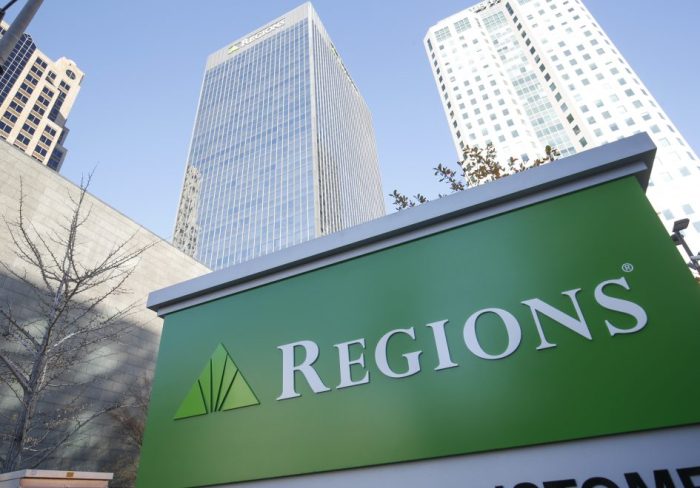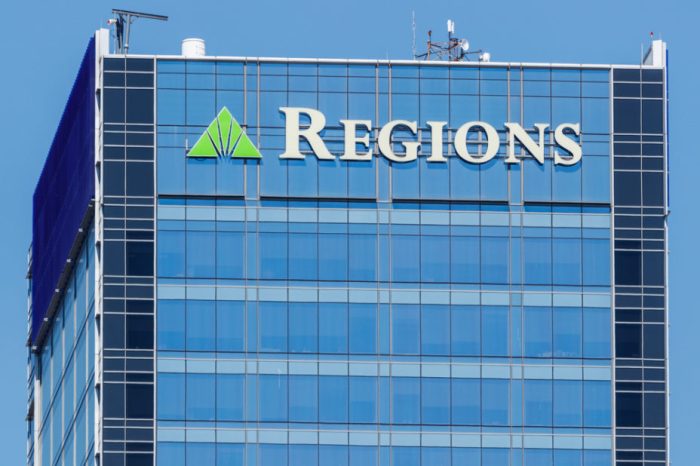How does a relationship banker at Regions make a living? This question delves into the multifaceted compensation structure of a rewarding yet demanding career. Understanding the factors that influence earnings, from base salary and bonuses to sales performance and career progression, provides a comprehensive view of the financial realities for these banking professionals. We will explore the various components of their compensation packages, including benefits and perks, and examine how individual performance directly impacts overall earnings.
This analysis will also consider how Regions Bank compares to other major financial institutions in terms of compensation and benefits.
Relationship banking at Regions, like many similar roles, relies heavily on building strong client relationships and successfully selling financial products. This involves not just acquiring new clients but also retaining existing ones and effectively cross-selling various services, from loans and investments to insurance and wealth management products. The more successful a banker is in these areas, the greater their potential earnings.
This exploration will highlight the strategies and skills that contribute to success in this competitive field.
Compensation Structure at Regions Bank for Relationship Bankers

Relationship bankers at Regions Bank, like those at other financial institutions, receive compensation structured to incentivize performance and client acquisition. The specific details can vary based on factors such as experience level, location, and the specific product lines managed. However, a general overview provides insight into the typical compensation structure.
Base Salary
Base salaries for relationship bankers at Regions Bank are competitive within the industry, though precise figures are not publicly available. Salary ranges are influenced significantly by experience. Entry-level positions typically offer lower base salaries, while senior relationship bankers with extensive experience and proven success can command considerably higher salaries. Geographic location also plays a role, with higher costs of living in major metropolitan areas often correlating with higher base salaries to attract and retain talent.
For example, a relationship banker in New York City would likely earn a higher base salary than one in a smaller town in the Southeast.
Compensation Package Components
Beyond base salary, a significant portion of a relationship banker’s compensation comes from variable pay. This typically includes bonuses and commissions directly tied to performance metrics. Bonuses are often awarded annually or semi-annually based on overall team and individual performance against predetermined goals. Commissions are earned on a per-transaction or per-product basis, depending on the specific sales targets achieved. The specific commission structure can vary based on the complexity and profitability of the products sold, such as mortgages, loans, or investment products.
A comprehensive benefits package typically includes health insurance, retirement plans (often including a 401k matching program), paid time off, and other perks.
Performance Metrics and KPIs
Compensation at Regions Bank is heavily influenced by performance. Key Performance Indicators (KPIs) are used to track and measure the success of relationship bankers. These KPIs often include:
- New client acquisition: The number of new clients acquired within a specified timeframe.
- Revenue generation: Total revenue generated from client relationships, reflecting sales of products and services.
- Client retention: The percentage of existing clients retained over a period.
- Average client balance: The average balance maintained by clients under the banker’s management.
- Product penetration: The number of different products and services sold to each client.
Meeting or exceeding these KPIs directly impacts bonus and commission payouts. Underperformance in one or more areas may result in reduced variable compensation.
Compensation Structure Comparison
While precise compensation data for all major banks is not publicly accessible, it’s generally understood that the compensation structure at Regions Bank is comparable to other large regional and national banks. The emphasis on variable compensation tied to performance is a common industry practice. However, the specific mix of base salary, bonus, and commission, and the weighting of individual KPIs, might vary depending on the bank’s overall strategy, the specific role, and the individual banker’s experience and performance.
Banks in high-cost areas often have higher base salaries to offset the increased living expenses, but the overall compensation package structure remains similar across institutions.
Factors Affecting Earnings

A Relationship Banker’s earnings at Regions Bank are influenced by a dynamic interplay of factors, primarily revolving around performance metrics and the successful management of a client portfolio. While a base salary provides a foundation, the significant portion of compensation is directly tied to achieving and exceeding predetermined goals.
The compensation structure is designed to incentivize performance and reward those who consistently contribute to the bank’s growth and profitability. Understanding these key drivers is crucial for Relationship Bankers aiming to maximize their earning potential.
Client Acquisition and Retention
The acquisition of new clients and the retention of existing ones are paramount to a Relationship Banker’s success. New clients represent opportunities for increased revenue streams through various banking products and services. Retention, on the other hand, fosters long-term relationships, leading to consistent income and the potential for upselling existing services. Regions Bank likely employs a points-based system or tiered compensation structure where acquiring a specific number of new clients, or maintaining a certain level of client retention, translates directly into bonus payments or commission increases.
For example, acquiring 10 new high-net-worth clients within a quarter might result in a substantial bonus exceeding the monthly base salary.
Impact of Product Sales on Overall Earnings
The sale of financial products, such as loans (mortgages, personal loans, business loans), investments (mutual funds, retirement accounts), and other banking services, forms a major component of a Relationship Banker’s compensation. Each product sold typically carries an associated commission or bonus, directly impacting overall earnings. The complexity and value of the product will generally correlate with the amount of compensation received.
For instance, successfully closing a large commercial loan will yield significantly higher compensation than selling a simple savings account.
Exceeding Sales Targets and Compensation
Regions Bank, like most financial institutions, sets sales targets for its Relationship Bankers. These targets are usually established based on factors like experience level, market conditions, and individual client portfolio size. Exceeding these targets directly translates into increased compensation. The reward structure often includes tiered bonuses, where surpassing a certain percentage above the target unlocks progressively higher payouts.
For example, achieving 110% of the sales target might result in a 10% bonus, while achieving 120% could unlock a 20% bonus, and exceeding 150% might trigger additional performance-based incentives. This system motivates Relationship Bankers to actively pursue and secure new business while diligently managing their existing client relationships.
Career Progression and Compensation Growth: How Does A Relationship Banker At Regions Make

A career at Regions Bank as a Relationship Banker offers a structured path for advancement, with increasing compensation and responsibilities at each stage. Progression is often tied to performance, client acquisition, and the development of specialized skills. This section details the typical career trajectory, compensation increases, and professional development opportunities available.
Typical Career Path for Relationship Bankers
The typical career path for a Relationship Banker at Regions Bank often involves a progression from entry-level positions to increasingly senior roles with greater responsibility and autonomy. While specific timelines vary depending on individual performance and market conditions, a common progression might look like this: Relationship Banker, Senior Relationship Banker, Relationship Manager, and potentially into management roles such as Team Lead or Branch Manager.
Compensation Changes with Career Progression
Compensation for Relationship Bankers at Regions Bank typically increases as they gain experience and move up the career ladder. This increase is often reflected in a higher base salary, as well as the potential for larger bonuses based on performance metrics such as loan origination volume, customer acquisition, and overall portfolio performance. For example, a newly hired Relationship Banker might earn a base salary within a certain range, while a Senior Relationship Banker with several years of experience and a proven track record could expect a significantly higher base salary and bonus potential.
The specific salary ranges vary based on location, experience, and performance.
Professional Development Opportunities and Their Effect on Earning Potential
Regions Bank invests in the professional development of its employees. Opportunities include internal training programs focusing on sales techniques, financial product knowledge, customer relationship management, and leadership skills. Participation in these programs can significantly enhance a Relationship Banker’s earning potential by improving their performance and opening doors to promotions. For instance, successful completion of a specialized training program might lead to a faster promotion to a senior role, or allow for the management of a larger and more profitable portfolio of clients, directly impacting their compensation.
Career Progression Summary
| Career Level | Typical Salary Range (USD) | Key Responsibilities | Expected Growth |
|---|---|---|---|
| Relationship Banker | $40,000 – $55,000 | Building client relationships, cross-selling products, meeting sales targets, managing a portfolio of clients. | Promotion to Senior Relationship Banker within 1-3 years, based on performance. Potential for increased base salary and bonus. |
| Senior Relationship Banker | $55,000 – $75,000 | Managing a larger and more complex portfolio of clients, mentoring junior bankers, developing and implementing client strategies, exceeding sales targets. | Promotion to Relationship Manager or Team Lead within 2-5 years. Potential for significantly higher base salary, bonus, and stock options. |
| Relationship Manager | $75,000 – $100,000+ | Leading a team of Relationship Bankers, managing a high-value portfolio of clients, developing and implementing business strategies, achieving significant sales growth. | Further advancement to management roles with increased responsibility and compensation. Potential for substantial bonus and stock options. |
Benefits and Perks

Regions Bank offers a comprehensive benefits package designed to attract and retain top talent, including competitive compensation, comprehensive health insurance, and robust retirement plans. These benefits, combined with various perks and incentives, aim to create a supportive and rewarding work environment for relationship bankers. The overall package is intended to be competitive within the financial services industry.Regions Bank’s benefits package is structured to support the well-being and financial security of its employees.
The company recognizes that a healthy and secure workforce is a productive workforce. This section details the key components of the benefits package and how they compare to industry standards.
Health Insurance
Regions Bank typically provides a range of health insurance options to its employees, including medical, dental, and vision coverage. These plans often feature different levels of coverage and deductibles to accommodate varying needs and budgets. The specific details of the plans, such as premiums and out-of-pocket costs, may vary depending on the employee’s location and chosen plan. The employer usually contributes a significant portion of the premium costs, further reducing the financial burden on employees.
These offerings are generally comparable to or better than those offered by similar-sized companies in the banking industry.
Retirement Plans
Regions Bank typically offers a retirement savings plan, often a 401(k) plan, to its employees. These plans allow employees to contribute a portion of their pre-tax income to a retirement account. The company often matches a percentage of the employee’s contributions, providing an additional incentive to save for retirement. This matching contribution acts as a significant employer contribution to the employee’s retirement savings, increasing the overall value of the retirement plan.
The specifics of the matching contribution and vesting schedule are usually Artikeld in the plan documents. The availability of a company-sponsored retirement plan is a standard benefit in the banking industry, with the generosity of the match varying between companies.
Paid Time Off
Regions Bank typically provides paid time off (PTO) to its employees, encompassing vacation time, sick leave, and potentially other forms of paid leave. The amount of PTO offered generally increases with seniority and tenure. This PTO allows employees to take time off for personal reasons, rest and recuperation, or family emergencies without sacrificing their income. The amount of PTO offered is generally competitive with industry standards.
Additional paid holidays are also usually provided.
Additional Perks and Incentives, How does a relationship banker at regions make
Beyond the core benefits, Regions Bank may offer additional perks and incentives to its relationship bankers. These can include professional development opportunities such as tuition reimbursement or training programs to enhance skills and career advancement. While company car allowances are less common in this role, other incentives like performance-based bonuses or profit-sharing plans may be available, depending on individual performance and the bank’s overall profitability.
These incentives are designed to motivate employees and reward high performance.
Comparison to Industry Standards
Regions Bank strives to offer a benefits package that is competitive with other financial institutions of similar size and scope. While specific details can vary based on location and role, the overall package is generally considered to be in line with or above industry standards for health insurance, retirement plans, and paid time off. The additional perks and incentives can further differentiate the Regions Bank offering and enhance its attractiveness to potential employees.
Summary of Key Benefits
- Comprehensive Health Insurance: Medical, dental, and vision coverage with employer contributions, providing significant cost savings for employees and comprehensive healthcare protection.
- Robust Retirement Plan: 401(k) plan with employer matching contributions, significantly boosting retirement savings and providing a strong foundation for future financial security.
- Generous Paid Time Off: Vacation time, sick leave, and paid holidays, allowing for work-life balance and time for personal needs.
- Professional Development Opportunities: Tuition reimbursement and training programs to enhance skills and support career growth, fostering continuous learning and advancement within the company.
- Performance-Based Incentives: Bonuses and potentially profit-sharing, rewarding high performance and contributing to employee motivation and financial success.
Illustrative Scenarios

To further illustrate the compensation structure for Relationship Bankers at Regions Bank, let’s examine three hypothetical scenarios showcasing the earnings potential at different career stages and performance levels. These scenarios are illustrative and should not be considered guarantees of specific earnings. Actual compensation will depend on numerous factors, as previously discussed.
Scenario 1: The Junior Banker
This scenario depicts Sarah, a recent college graduate in her first year as a Relationship Banker. Sarah’s responsibilities primarily focus on building relationships with new clients, assisting senior bankers with client servicing, and actively participating in community outreach programs. Her sales performance is modest during her first year, resulting in the achievement of approximately 70% of her assigned sales goals.
This translates to a base salary of $45,000 plus a commission of approximately $5,000, resulting in a total annual compensation of $50,000. Her relatively low commission reflects her limited client base and experience in closing complex deals. Her compensation is heavily weighted towards her base salary, typical for entry-level positions. Her performance reviews highlight her strong work ethic and potential for growth.
Scenario 2: The Experienced Banker
This scenario focuses on David, a Relationship Banker with five years of experience at Regions Bank. David manages a diverse portfolio of clients, originating and closing a significant volume of loans and other financial products. He consistently exceeds sales targets, achieving 120% of his assigned goals. David’s responsibilities extend to mentoring junior bankers and actively participating in business development initiatives.
His base salary is $70,000, and his commission income reaches $30,000, leading to a total compensation of $100,000. His higher commission reflects his larger client portfolio, successful sales track record, and expertise in handling complex transactions.
Scenario 3: The Senior Banker
This scenario portrays Maria, a highly successful Relationship Banker with fifteen years of experience. Maria leads a team of junior bankers, managing a substantial portfolio of high-net-worth clients. She is responsible for developing and implementing strategic sales plans, overseeing risk management, and actively contributing to the overall growth of the bank’s business. Maria consistently exceeds expectations, regularly achieving 150% of her sales goals.
Her base salary is $120,000, and her commission income is a substantial $60,000, leading to a total compensation of $180,000. Her high earnings reflect her extensive experience, leadership skills, and exceptional sales performance in managing high-value client relationships. Her compensation package also likely includes additional benefits and incentives not included in the base salary and commission.
Closing Summary

In conclusion, a relationship banker’s earnings at Regions Bank are a dynamic reflection of their skills, dedication, and performance. While a competitive base salary forms the foundation, the true earning potential lies in the ability to cultivate strong client relationships, consistently exceed sales targets, and leverage professional development opportunities. Understanding the various components of the compensation package, including bonuses, commissions, and benefits, is crucial for aspiring relationship bankers.
The path to higher earnings is paved with consistent performance, strategic client management, and a commitment to continuous professional growth within the dynamic landscape of the financial services industry.